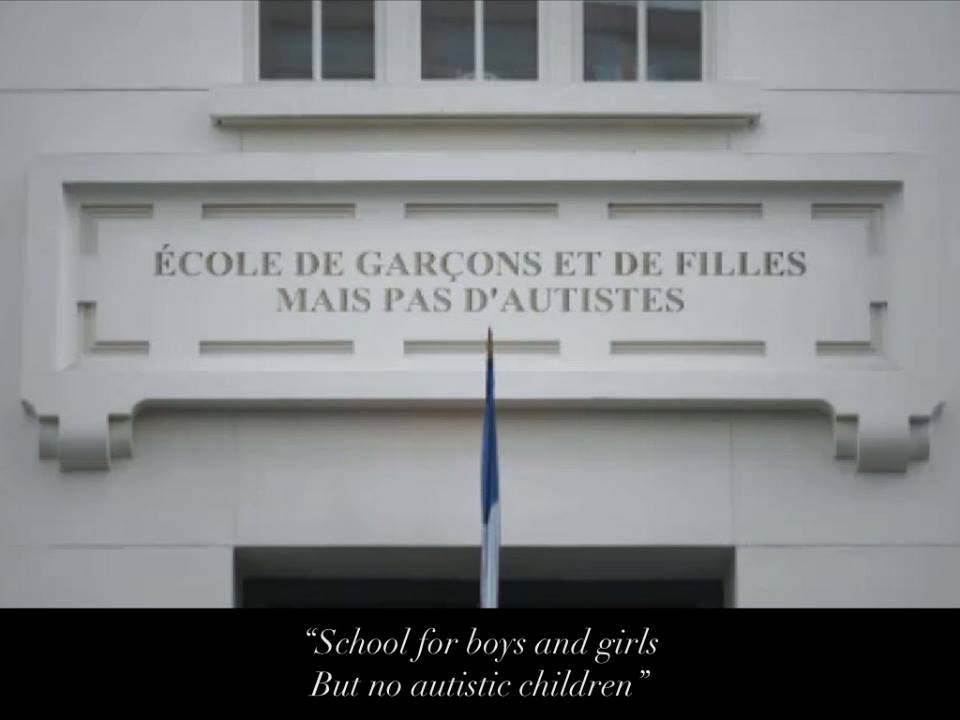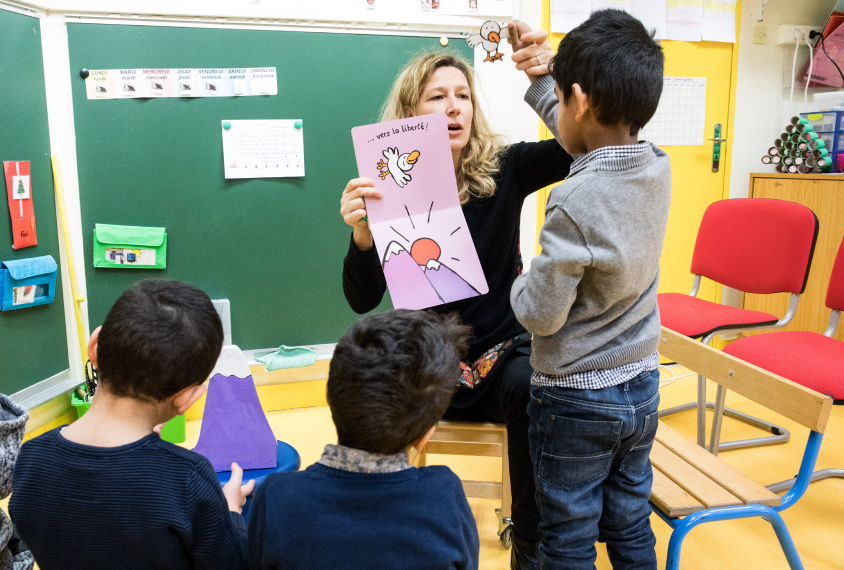Though there have been numerous improvements in the recognition and awareness of a utism across the globe in recent years, there are still many areas that are lagging behind in diagnosing the condition early on in childhood. Up until the last decade, France has been one of those areas, however, diagnoses have increased to a rate of about 1 in every 150 people since France made autism its national focus in 2012. That being said, France still has quite a way to go. Within the last 5 years, the country has been condemned by the Council of Europe for mistreating and violating the rights of people who have autism, especially children and their right to attend a mainstream school.
utism across the globe in recent years, there are still many areas that are lagging behind in diagnosing the condition early on in childhood. Up until the last decade, France has been one of those areas, however, diagnoses have increased to a rate of about 1 in every 150 people since France made autism its national focus in 2012. That being said, France still has quite a way to go. Within the last 5 years, the country has been condemned by the Council of Europe for mistreating and violating the rights of people who have autism, especially children and their right to attend a mainstream school.
Almost 15 years ago, the French government started to do more for the neurodiverse community by creating its first “Autism Plan” which was designed to not only screen and diagnose children, but also offer advice and helpful tips on how to raise a child who has autism. As time passed, those plans began to slowly lose attention and now activists groups and parents of children who are autistic are calling this to attention in hopes to get a revamping of these plans in hopes that it will allow more opportunities for those who are neurodiverse.
As far as the public view on autism, a survey showed that many parents believe autism is either caused by certain stressful encounters in life or how the parents interact with their children. This stems from the viewpoint that many French psychoanalysts have and these are the two most common reasons doctors tell parents when explaining the cause of their child’s autism.
Since the psychoanalytical view is the most popular in France, controversial treatments have been popularized, such as packing. Packing is when a child is wrapped tightly in several layers of towels and left like this for about an hour as a way to allow the children to “express themselves”. Across the globe, researchers of autis m have deemed this practice unethical and explained why it is a poor method to “treat” autism. Also, since it is still common to believe parents are a potential cause of autism, families that include an autistic child are much more likely to be assessed by social workers and it is significantly easier for a court to decide their child should be taken into custody and put in a foster or group home.
m have deemed this practice unethical and explained why it is a poor method to “treat” autism. Also, since it is still common to believe parents are a potential cause of autism, families that include an autistic child are much more likely to be assessed by social workers and it is significantly easier for a court to decide their child should be taken into custody and put in a foster or group home.
Activists group s and the neurodiverse community are trying to expand the opportunities available for those who are not neurotypical and show that autism is not a psychosis as previously defined. They are also fighting to guarantee rights to neurodiverse students in all mainstream schools, not just some and their efforts are inspiring action to take place. Within the last few years many schools in France have adopted teachers and specific classroom characteristics to better suit neurodiverse students.
s and the neurodiverse community are trying to expand the opportunities available for those who are not neurotypical and show that autism is not a psychosis as previously defined. They are also fighting to guarantee rights to neurodiverse students in all mainstream schools, not just some and their efforts are inspiring action to take place. Within the last few years many schools in France have adopted teachers and specific classroom characteristics to better suit neurodiverse students.
Sources:
http://journals.sagepub.com/doi/pdf/10.1177/1362361309354756
http://www.independent.co.uk/news/long_reads/france-autism-treatment-care-support-french-healthcare-a8161416.html
https://halshs.archives-ouvertes.fr/halshs-00875756/document
It’s so interesting to hear how a country that is just as scientifically and technologically advanced as ours can have such a different opinion on a topic as compared to us. I suppose it’s a difference in the prevailing psychological theories, but you would think with a disorder as prevalent as autism that healthcare officials would want to take in as much information as they could to make diagnoses and craft treatments. As to the unethical treatments in practice, I’m surprised that more has not been said in the international healthcare community, and I’m equally as surprised that I haven’t ever heard about any of this controversy. I guess each country has its own understanding of autism, and we stick to that, not looking at how others view the disorder.
I am also surprised that this issue has not been more publicized. I heard that France has a significant issue with medical “desertification”, whereby therapists and health professionals in general are often difficult to access, especially in more rural areas. Medical desertification is especially problematic when it comes to finding specialists, such as psychologists who could offer support to autistic individuals and their families. It seems likely that the low availability of these specialists would also mean that families have few alternatives if the psychologist in their area is unqualified, uses unethical methods or doesn’t have a good understanding of neurodiversity. If this is the case, part of improving the lives of neurodiverse individuals in France would include not only changing the public and government’s view of the matter, but improving the health care system so that autistic individuals have access to reliable, supportive services.